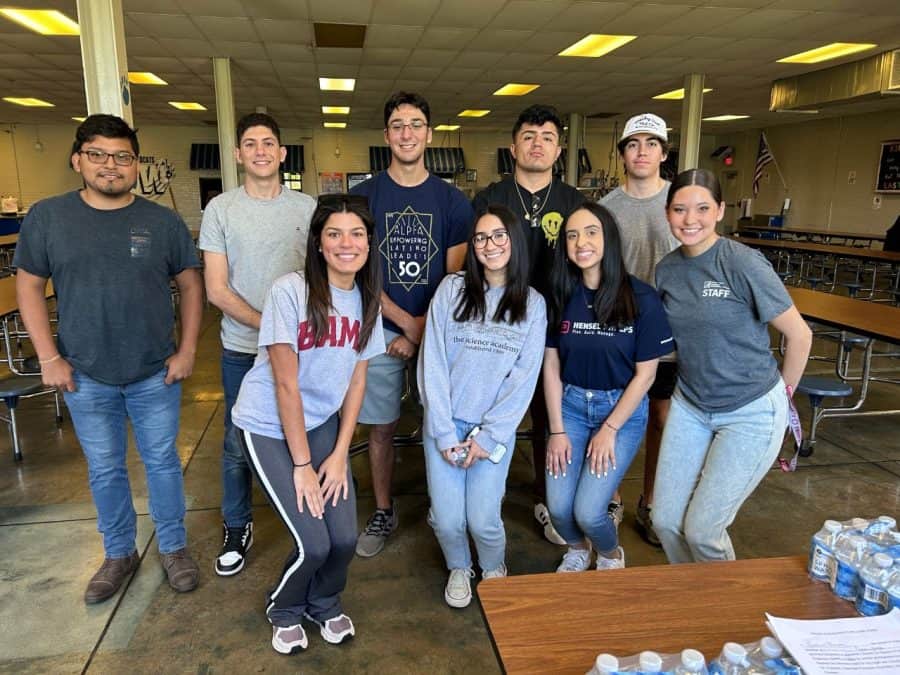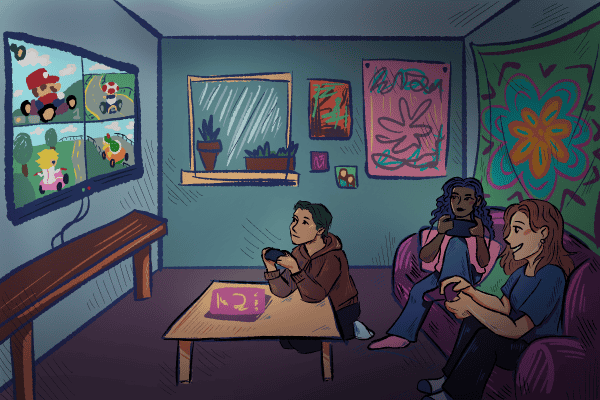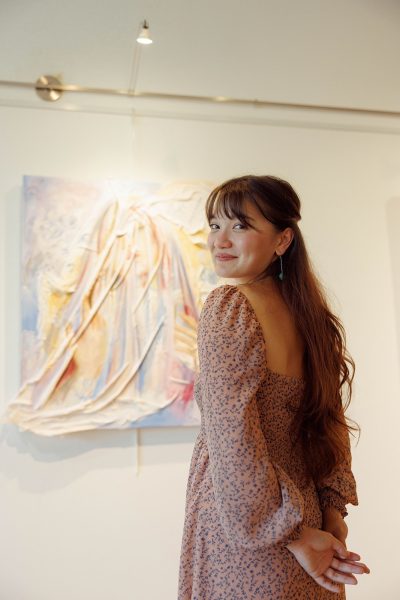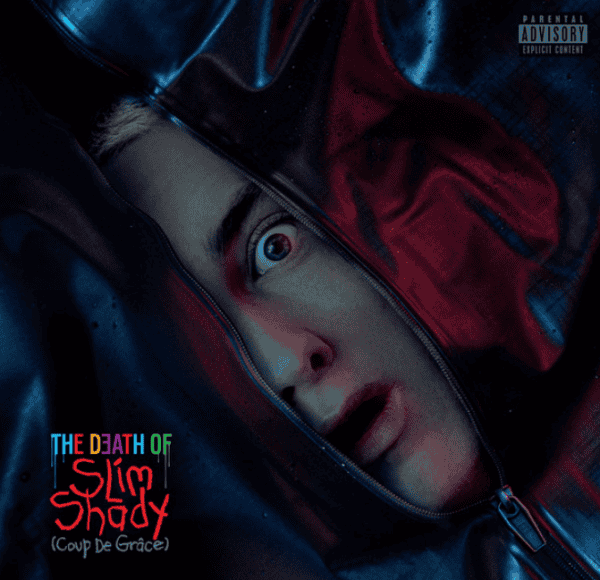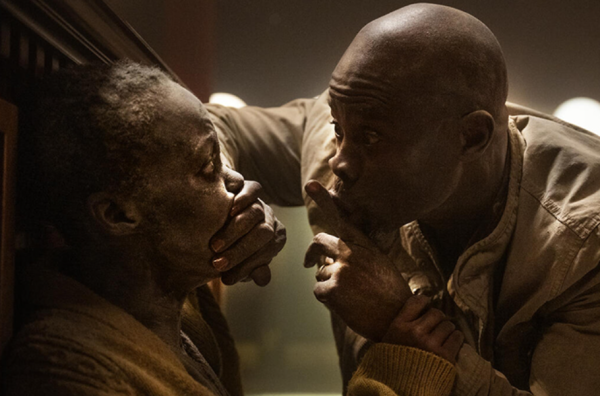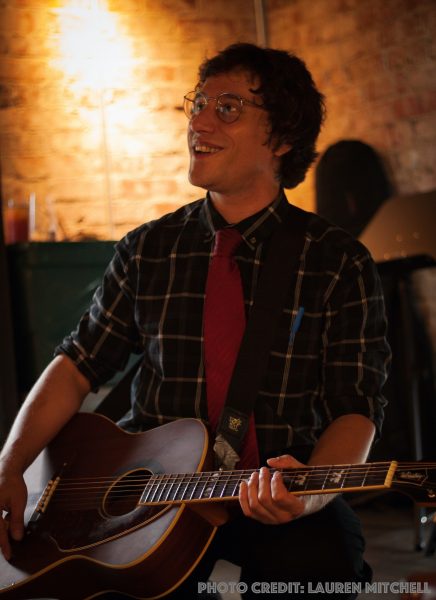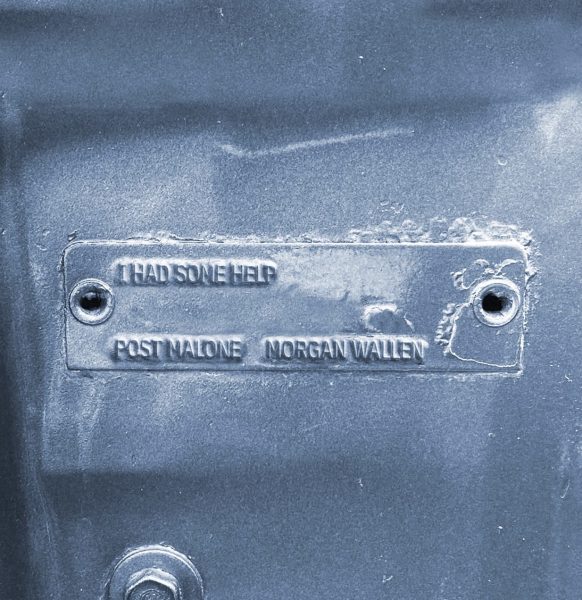UA student organizations host “Noche de Ciencias” at Echols Middle School
April 12, 2023
On the afternoon of April 11, three student organizations from The University of Alabama made the trip to Echols Middle School in Northport, Alabama, with the goal of building interest in STEM among local Hispanic and Latino middle schoolers.
Walking into Echols’ cafeteria, more than 20 volunteers began setting up for the event, titled “Noche de Ciencias” — in English, “Night of Science” — by placing Build and Learn Solar Robots around the room. After around 15 minutes, a line of middle schoolers filed in and excitedly split into groups of four, chatting in intermittent Spanish and English with the UA students who were there to lead the process of building the solar kits.
Some of the middle school students immediately jumped headfirst into building the robots, excited about how similar they were to LEGO sets. Others were more hesitant but soon became enthusiastic participants after encouragement from the volunteers.
The three campus organizations involved — the Hispanic-Latino Association, the Association of Latino Professionals For America and the Society of Hispanic Professional Engineers — partnered together for the first time to host this event. Given the success of Echols Middle School’s “Noche de Ciencias,” this will likely not be the last time.
In fact, this was UA ALPFA’s first ever community service event; the club has only officially existed on campus since January, despite being one of the largest national Latino professional organizations in the United States.
The UA ALPFA chapter started when Matthew Oakley, a junior majoring in finance and economics and the vice president of ALPFA, met fellow UA student Karim Hassan, a junior majoring in finance and the president of the organization, at ALPFA’s national convention last year. The UA chapter boasts a GroupMe with around a hundred students, and Oakley plans on participating in additional community service events in the future.
Donora Pinkleton, a seventh-grade counselor at Echols Middle School who has been there for twelve years, discussed how important events like these are.
“A lot of these students are first-generation born in the United States, and their parents may not have high[er] education. And so they’re going to be the first in their families — a good many of them — that will be able to go to college,” Pinkleton said.
She said that it’s important for local kids to see Hispanic and Latino representation in nearby universities.
“For them to see university students that are similar to them, I think is enormous. It’s super important,” Pinkleton said.
Many of the students at Echols Middle School are already thinking about the prospect of higher education.
“Several of the girls this year have been like, ‘What do I need to do in high school to make sure that I graduate? To make sure that I can do something after high school? And what is that something going to be?’” Pinkleton said.
Events like “Noches de Ciencias” can provide students with the experience of seeing STEM skills in action, while also allowing UA students to serve as role models and mentors.
“For them to be able to see these university students and know that that’s a possibility, and that there are people out there rooting for them and supporting them, I think it’s good,” Pinkleton said.
This event was especially important to the UA students who participated because Hispanic and Latino students are underrepresented in STEM fields in the United States. According to Pew Research, in 2021, although Hispanic workers make up 17% of employees in the U.S., they account for just 8% of workers in STEM fields.
This issue is something the volunteers emphasized, and after a show-and-tell with the solar robots, they spoke to the kids about underrepresentation and why educational pursuits are important.
“There’s a large importance in getting kids interested in STEM. I know when I was a kid, there wasn’t a lot of push towards it, and luckily that’s starting to change a bit,” said Alex Taylor, a junior majoring in metallurgical engineering.
Later this April, Taylor will replace Rachel Alemany, a senior majoring in civil engineering, as the president of SHPE. Alemany organized much of the Noches de Ciencias event, and Taylor plans to organize future events like this one when he becomes president of the club.
“I would like to do more programs getting children, specifically Latino students, interested in STEM like this. I’m really glad we got to do this right here, and I really think it would be good to do more events like this,” Taylor said.
Taylor said that engineering, when introduced in an engaging way, can inspire young students.
“If we can expose these kids to what engineering really is, which is problem solving, then they could see themselves and say, ‘Well, I’m good at solving problems,’” Taylor said.
Ideally, events like this will help to form a cycle promoting success from generation to generation.
“The reason we place a lot of emphasis on community service and giving back to the community is because we want to develop professionals who — once they start working in their industry — maintain that moral minimum by helping people who got them where they are and investing in their communities to keep the cycle going of developing professionals down the line,” said Dyvia Huitron, a freshman majoring in economics and public health and one of the volunteers.

